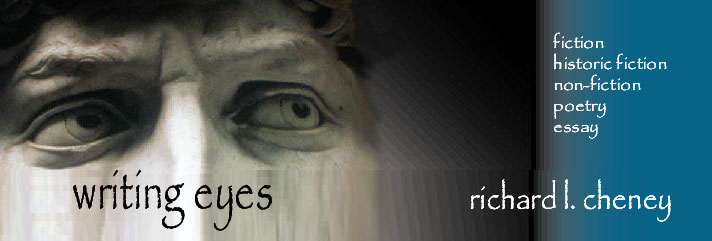Hieroglyphs by Richard Cheney [historic fiction]
Only an Egyptologist would mumble in his sleep in transliterated hieroglyphs: "dpt ntr.... as-k em dpt ntr" [behold, thou art in the sacred bark].
In the waning years of the twentieth century, an audience has gathered to hear the annual Christmas lecture to be given by Professor Emeritus "Salt" Harris of the University of Chicago. The old professor, thirty minutes overdue, is sleeping in his cramped office in the Oriental Institute. An enterprising graduate student, Alma Carlisle, is astonished to find the professor ready to forego the lecture in favor of honoring Carlisle with his life story, including one tantilizing bit of information: professor Harris, great-great grand nephew of Martin Harris, one of three witnesses of the gold plates from which the Book of Mormon was translated, is the possessor of one hundred sixteen pages of handwritten manuscript, pages which Martin Harris begged to show to members of his family and then lost. The loss of the manuscript is historic fact. Salt Harris reveals a tragedy resulting from his possession, and a fateful decision to make of a mystery a matter of faith.
Wednesday, January 20, 2010
Subscribe to:
Post Comments (Atom)



No comments:
Post a Comment